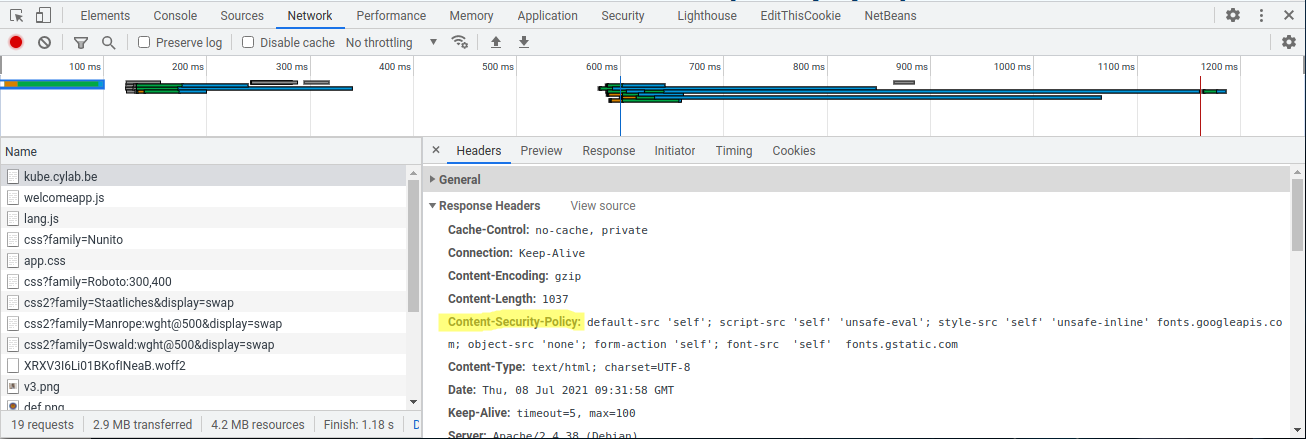Harden your Laravel app with CSP headers
Jul 8, 2021 by Thibault Debatty | 5925 views
Laravel Secure Software Development Docker Cyber-Wise
https://cylab.be/blog/155/harden-your-laravel-app-with-csp-headers
CSP (Content Security Policy) reduces the risk of cross-site scripting and other content-injection attacks by defining, at the level of the webserver, a header that whitelists authorized sources of content for your website.
There is no policy that fits all websites. Hence CSP is not enabled by default on a Laravel app. So here is an example that you should add to the file public/.htaccess:
<IfModule mod_headers.c>
# https://cylab.be/blog/155/harden-your-laravel-app-with-csp-headers
Header set Content-Security-Policy "default-src 'self'; style-src 'self' fonts.googleapis.com; object-src 'none'; form-action 'self'; font-src 'self' fonts.gstatic.com"
</IfModule>
In this example:
- by default js and css files can only be downloaded from the same domain;
- css files can be downloaded from the domain self, or from
fonts.googleapis.com; <object>,<embed>and<applet>are blocked;- form can only be POSTed to the same domain;
- fonts can be downloaded from the same domain, or from
fonts.googleapis.com.
CSP has a lot of available directives. To help you define your CSP you can use an online CSP header generator. You can also use a validator that will explain the result of your CSP.
For this to work, you must enable the headers module on your server:
sudo a2enmod headers
Or, if you are using Docker, you must add this command to your Dockerfile:
RUN a2enmod headers
Check
You can check the header is correctly sent by your server using the ‘Network’ tab of your browser.
This example is taken from our Cyber-Wise project.
This blog post is licensed under
CC BY-SA 4.0



